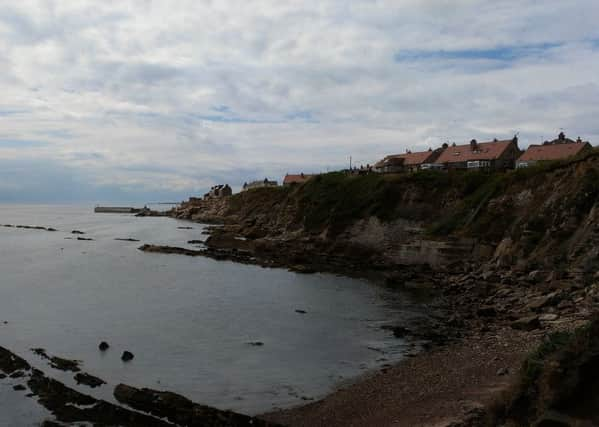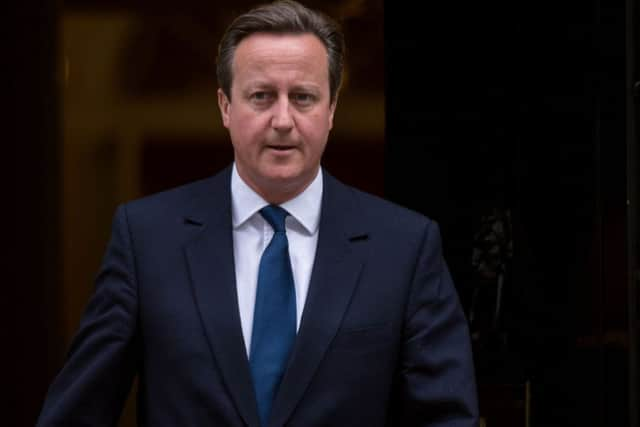Popular Scottish surnames and their meanings (part two)


Abercrombie
Scottish surname that derives from the village of Abercrombie in Fife, meaning “at the mouth of the river Crombie”. Famous Abercrombies includes American David T. Abercrombie who in 1892 founded what would become known as Abercrombie & Fitch, originally an outdoor clothing company and now one of America’s biggest retail brands.
Aitken


Scots version of the English surname Akins. Atkins itself is a diminutive of the first name Adam, the first man in the Bible, with Adam simply meaning “man” in Hebrew.
Alison, Allison, Alyson
Advertisement
Hide AdAdvertisement
Hide AdAs a surname it is generally thought that in this context it doesn’t mean “son of Alice”, but is an anglicised version of MacAlister and means “son of Alexander”.
Allan


Originally found in the north east of Scotland, the name Alan was brought to Britain by the Normans and originated from the French Alain. The Gaelic word for Allen is Ailinn, meaning “rock”.
Anderson
Means “the son of Andrew”. Anderson has long been considered a particularly Scottish surname, and is currently the eighth most common surname in the country.
Angus, Aonghus
The name comes from the Pictish and Gaelic name Aonghus or Oengus meaning “unique choice” or “one strength”, which is associated both with a famous 8th century Pictish King Oengus and the Celtic god Aengus Og.
Armour
Surname that derives from the occupation of armour-maker.
Armstrong
From the Scottish-English Border region. The name is derived from the Old English words earm meaning “arm” and strang, meaning strong. The founder of the Armstrongs was said to be a strong man who carried the king’s armour. The Armstrongs lived up to their name by becoming one of the most powerful of the Border clans known for their cross Border raiding.
Baillie
The name derives from the Scots word baolie, which originates from the French Baillier or English word “bailliff”, meaning someone who held the position of a magistrate or senior member of a town city or council.
Bain
Originated in the north east, it derives from the Gaelic word ban meaning “white” or “fair”.
Baird
Originates from the Gaelic word bard meaning “bard” or “minstrel” and became prominent in Ayrshire. Famous Bairds include Scottish inventor of the television, John Logie Baird.
Balfour
Advertisement
Hide AdAdvertisement
Hide AdOriginated from a place name in Fife, that possibly means “place of pasture”. Scottish politician Arthur Balfour served as Prime Minister between 1902 and 1905 and as Foreign Secretary in 1917 wrote the Balfour Declaration, which became famous for starting Britain’s official support for a Jewish state.
Ballantine, Ballantyne, Bannatyne
The different spellings originate from the different place names in the Borders and Lanarkshire. The meaning is uncertain, but suggested meanings include “place of farm”. A Bryothonic origin is also possible, with the borders place name of Bellended possibly meaning “place for worship of Bel”, with Bel being the Celtic god of light and fire.
Barbour
Originates from the Scots word for the occupation of barber and is a Scottish variation of the English surname Barber.
Barclay
Originated from a Norman family called De Berkeley and the Gloucestershire village of Berkeley. The Scottish form of the surname became prominent in Aberdeenshire and it was Montrose banker James Barclay who in 1736 gave his name to the Barclay’s bank.
Barr, Barrie
Derives from the Gaelic word barr meaning “hilltop”, which is found in several Scottish place names. Famous Barrs include Scottish soft drinks company A.G. Barr & Co, best known for producing Irn Bru.
Baxter
Scots form of the occupation of baker and is thought to have originally referred to a female baker.
Beaton
Originated from the Lowlands, from a Norman surname Bethune, which came from a place name in Northern France also called Bethune. The place name is of uncertain origin but is possibly derived from a personal name “Betto”. In the Highlands, Beaton is the anglicised form of the surname MacBeth, meaning “son of life”.
Beattie, Beatty
From the Gaelic word biadhtaich meaning the occupation of victualler or food supplier, or from a diminutive of the male first name Bartholomew.
Bell
Advertisement
Hide AdAdvertisement
Hide AdFrom the occupation of bell-ringing or bellmaking, or from the French word bel meaning handsome. Famous Scottish Bells include those from Perth, one of the most popular forms of whiskies.
Briss
Comes from a place in Aberdeenshire, originating from the Gaelic word briss meaning bush.
Black
The surname was often chosen by the MacGregors and members of other Highland clans in the period when their clan names were banned. Means black haired.
Blair
Derived from the Gaelic place name Blar for cleared level land or place of battlefield. Blair was first recorded as a surname in the 13th century in Renfrew and Ayrshire.
Boswell
Of Norman origin, deriving from the French word bois meaning wood and ville meaning town. The Borders place name St Boswell derives from the 7th century saint.
Bowie
From the Gaelic buidhe meaning yellow haired.
Boyd
Originated in Ayrshire and Bute coming from the Gaelic buidhe meaning yellow haired.
Bremner
From the Brebner family, from the Brabant area of what is now Belgium.
Brodie
The name is derived from the Gaelic brothaich meaning muddy place.
Brown
Advertisement
Hide AdAdvertisement
Hide AdBrown is the second most common surname in Scotland. English word meaning brown hair.
Bruce
The name Bruce comes from the Norman family Brus who came to Scotland and were given Annandale in the 12th century by David I. Believed to have originated from the Norman place of Brix meaning willowlands.
Buchanan
Derives from the Buchanan district on the eastern shore of Loch Lomand. The name is Gaelic and means priest’s house.
Burnett
Originated in Aberdeenshire. The name comes from a family by the name of Burnard who were given land there in the 14th century. The origin is unclear but it has been suggested it comes from the French burnete, which has Germanic origin meaning brave bear.
Burns
The name is not exclusively Scottish and probably derives from the English word burn meaning stream. Surname of the famous Scottish poet Robert Burns.
Calder
In the lowlands, Calder originates from the place name that is found in the West Lothian towns of West Calder, Mid Calder and East Calder. It is believed to have derived from the Brythonic caled dobhar meaning rough water.
Cameron
The name comes from the Gaelic camsron meaning crooked or hooked nose. The clan Cameron came form the Lochaber area.
Campbell
The name comes from the Gaelic cambeul meaning wry mouth and the French champ bel meaning beautiful field. The Campbells became on of the dominant clans in Scotland with the clan chieftain gaining the title Duke of Argyll in 1701. The family seat is at Inverary Castle.
Cargill
Advertisement
Hide AdAdvertisement
Hide AdOriginates from a place called Cargill in Perthshire. The name possibly derives from the Brythonic language and means white fort.
Carlyle
The name is English in origin and it was first found in Scotland in Dumfries and Galloway.
Carmichael
Originated from South Lanarkshire. First part of the names is derived from the Brythonic caer meaning fort and the second part from Michael meaning who is like God.
Carnegie
Scottish surname deriving from Angus.
The name is Gaelic and means the fort in the gap. The most famous Scottish Carnegie is Andrew Carnegie, from Dunfermline who in the 19th century became one of the richest men in America.
Christie
The name originates from the first name Christopher and became prominent in Fife.
Clark
Popular throughout Britain, the name comes from the occupation of clerk or scholar.
Cochrane
Originated from a place in Renfrewshire called Coveran. Uncertain origin but could possibly be from Brythonic coch meaning red.
Colquhoun
Gaelic name meaning narrow wood.
Cranston
Originated in the Borders and Lothians and is derived from crane, the bird and ton meaning town.
Crawford
From a village in Lanarkshire that derives from the Scots word craw meaning crow.
Cumming
The original surnames originated as a Norman first name, or alternatively from an Old Celtic first name Coman.